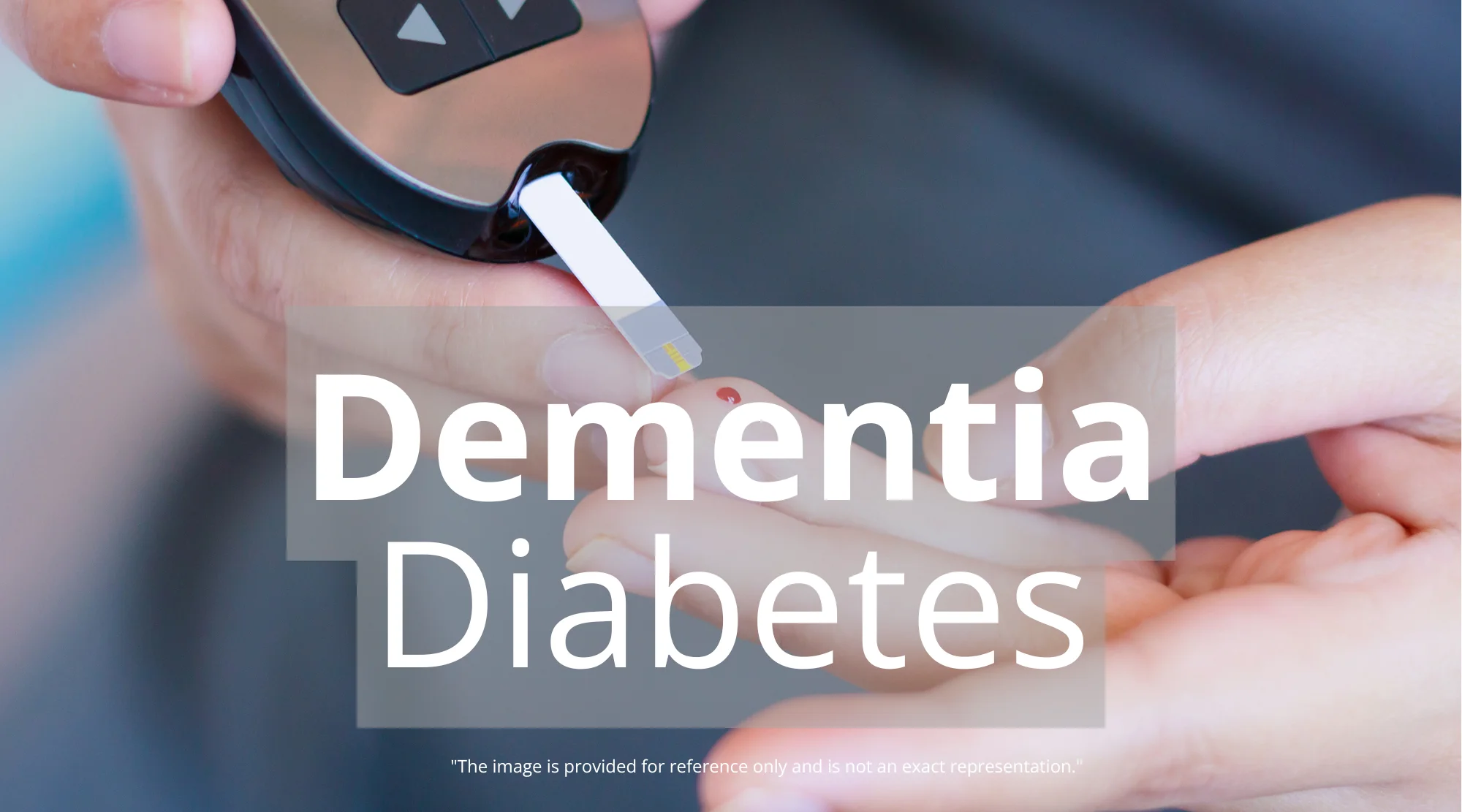The Diabetes-Dementia Link: Unraveling the Connection and Protecting Your Brain
It’s becoming increasingly clear that what’s good for your heart is also good for your head. Recent research has uncovered a strong and complex relationship between diabetes and dementia. Individuals with diabetes face a heightened risk of developing cognitive decline, while the mechanisms of Alzheimer’s and other forms of dementia often mirror the metabolic disturbances seen in diabetes. This article delves into the intricate connection between these two conditions, providing evidence-based insights and practical advice for preserving your brain health.

The Elevated Risk: Diabetes and the Threat to Cognitive Function
The numbers are compelling. Studies indicate that individuals with diabetes have a significantly higher likelihood – approximately 60% greater – of developing dementia compared to those without the disease. This increased risk underscores the importance of proactive management of blood sugar levels. Fluctuations in blood glucose, including frequent episodes of low blood sugar (hypoglycemia), have been associated with a concerning 50% increase in the risk of cognitive decline. This highlights the critical need for consistent blood sugar control to safeguard brain health.
Insulin Resistance: A Brain-Wide Problem
Insulin resistance, the hallmark of type 2 diabetes, occurs when your cells become less responsive to insulin. This leads to elevated blood sugar levels. While its impact on the liver and muscles is well-known, insulin resistance also extends to the brain. In Alzheimer’s disease, the brain’s ability to utilize glucose for energy may be impaired, contributing to cognitive deterioration. Further reading on this topic can be found in “Brain Health: Everyday Habits That Are Quietly Damaging Your Mind & How to Fix It”
The Brain’s Energy Crisis and “Type 3 Diabetes”
The brain, though only representing about 2% of our body weight, consumes a disproportionate amount of energy, around 20% of the body’s total energy expenditure. In dementia, brain cells seem to struggle to effectively use glucose. This combination of insulin resistance and impaired glucose utilization has been informally termed “type 3 diabetes.” This terminology underscores the parallels between the metabolic challenges in diabetes and the brain’s energy deficit in dementia.
Alzheimer’s: A Potential Trigger for Diabetes
The relationship is not one-way. Individuals with Alzheimer’s disease may exhibit higher fasting blood glucose levels, even without a diabetes diagnosis. This can be seen as a form of pre-diabetes, hinting at a bidirectional influence between these conditions. Furthermore, research, including animal studies, suggests that Alzheimer’s-related changes in the brain can contribute to elevated blood glucose.
Vascular Damage: The Shared Enemy
Both diabetes and dementia share a common enemy: damage to blood vessels. Diabetes damages blood vessels, affecting organs like the eyes, kidneys, and heart. The brain is also vulnerable. Fluctuating or chronically elevated blood glucose levels can harm the delicate vessels within the brain, diminishing blood flow and oxygen supply. This vascular damage is a major contributor to cognitive decline.
Memantine: A Diabetes-Inspired Dementia Drug
The development of memantine, a medication used to treat moderate to severe Alzheimer’s symptoms, provides a fascinating case study. Initially developed as a diabetes medication, it failed to effectively control blood glucose. However, researchers later discovered its benefits for brain function. This highlights how diabetes research can yield valuable insights into treating brain disorders.
Metformin: A Potential Brain Protector
Metformin, a widely prescribed diabetes drug, does more than just lower blood sugar. It can cross the blood-brain barrier and may reduce brain inflammation. Some studies suggest that diabetes patients taking metformin have a lower risk of developing dementia, with risk potentially increasing upon discontinuing the drug. Trials are now underway to explore the drug’s effects in individuals without diabetes.
GLP-1 Receptor Agonists: Weight Loss and Reduced Dementia Risk
GLP-1 receptor agonists, such as semaglutide (Ozempic, Wegovy), not only help manage blood sugar but also support weight loss. Studies reveal that people with diabetes taking these medications may experience a lower risk of dementia. These drugs have shown, in some studies, greater effectiveness than metformin in reducing dementia risk.
Insulin Therapy and the Brain: A Targeted Approach
Because insulin resistance in the brain is a critical issue, researchers have explored the use of insulin sprays delivered directly to the brain through the nose. Initial studies show some promise in improving memory or reducing brain shrinkage. The safety and optimal delivery of this approach are still under investigation.
SGLT2 Inhibitors: A Promising New Avenue
New evidence suggests that SGLT2 inhibitors, another class of diabetes medications, may offer superior benefits in reducing dementia risk, including Alzheimer’s and vascular dementia, in people with type 2 diabetes, compared to GLP-1 receptor agonists. These drugs work by increasing sugar removal through urine.
Conclusion: Taking Control of Your Brain Health
The link between diabetes and dementia is complex but undeniable. By understanding the interplay between blood sugar, insulin resistance, and brain health, you can take proactive steps to protect your cognitive function. This includes managing blood glucose effectively, maintaining a healthy lifestyle, and staying informed about the latest research and treatment options. Consider exploring the numerous health benefits of exercise in “Exercise Benefits: Supercharge Your Health & Well-being (The Ultimate Guide)”Remember, prioritizing your overall health is an investment in a sharper mind and a brighter future.













1 comment